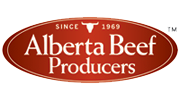Mycoplasma Strains
| Project Code: | 0007-055 |
| Completed: | March 2010 |
Project Title:
Survey of Mycoplasma bovis strains derived from calves in commercial feedlots in Western Canada
Researchers:
Dr. Murray Jelinski murray.jelinski@usask.ca
Murray Jelinski, DVM, John Campbell, DVM (Western College of Veterinary Medicine), Andrew van Kessel, PhD (University of Saskatchewan)
Mycoplasma bovis has become a significant bacterial pathogen in commercial feedlots over the past decade. Since Mycoplasma bacteria lack a cell wall, antibiotics (which disturb bacterial cell walls) are not very effective for treating cattle infected with these bacteria. M. bovis is involved in bovine respiratory disease complex (BRD), and also plays a role in chronic pneumonia and polyarthritis syndrome (CPPS) in high-risk fall-placed feedlot calves. This syndrome has emerged as a leading cause of mortality in feedlot calves in Western Canada. Calves with CPPS may also be euthanized due to severe lameness problems. The disease is quite complex, as there are many different strains of M. bovis, and although many calves become infected, not all become sick, and not all develop CPPS.
Objectives:To: 1) determine the prevalence of Mycoplasma bovis in fall-placed feedlot calves; 2) describe the ecology of M. bovis within pens of feedlot calves; and 3) determine if specific strains of M. bovis are related to disease in the feedlot.
What They Did:The preliminary prevalence of Mycoplasma bovis was examined, using approximately 80 animals from five feedlots across Saskatchewan and Alberta. Nasopharyngeal samples were obtained and analyzed for Mycoplasma species. To determine the prevalence of M. bovis in healthy feedlot steers, the researchers sampled 36 calves showing no clinical signs of illness at differing times throughout the feeding period. The largest portion of the study involved sampling approximately 1300 calves over two years from two different feedlots at their initial arrival into the feedlot, as well as upon any treatment for respiratory disease. By employing methods of molecular strain differentiation, the researchers were able to identify different strains of Mycoplasma recovered from the samples. In addition, lung tissues and joint swab samples from confirmed cases of chronic pneumonia and polyarthritis syndrome (CPPS) were analyzed for the presence of M. bovis.
What They Learned:The preliminary prevalence study demonstrated that there is a high degree of variance in Mycoplasma species depending on location. The incidence of Mycoplasma species varied between feedlots anywhere from 20% to 82%. It was more difficult to isolate Mycoplasma from cattle displaying signs of clinical illness than from those that appeared healthy. When looking at healthy cattle, M. bovis increased 6-8 times over the 76-day study period. In addition, the colonization of M. bovis was not the same in the upper and lower areas of the respiratory tract, which means that the presence of M. bovis in the upper respiratory tract does not necessarily mean that M. bovis will also be present in the lungs.
Cattle from one of the two feedlots in the large survey study had an extremely low treatment rate for respiratory disease, and thus are excluded from the results. Out of the 650 calves entering the feedlot that year, 56 were subsequently treated for respiratory disease and received another nasopharyngeal swab. The most common Mycoplasma species cultured were M. bovis (41%) and M. bovirhinis (32%), with the number of animals positive for M. bovis (68%) increasing substantially later in the feeding period versus on arrival. The number of calves positive for multiple Mycoplasma species increased from 7% upon arrival to 21% upon the treatment sampling. There was no relationship between the presence of M. bovis upon arrival and the presence of M. bovis at the time of treatment. Of those cattle diagnosed with CPPS, M. bovis was cultured from 86.2% of lung and/or joint samples obtained upon necropsy.
Three genetically distinct strains of M. bovis were isolated from both the CPPS and feedlot cattle. Multiple strains were not uncommon in the same animal, and no difference was discovered between the strains present on arrival to the feedlot and later in the feeding period, or upon treatment. M. bovis isolated from healthy cattle belonged mostly to strain B, while M. bovis isolated from feedlot cattle in the survey study were from strain A. None of the healthy cattle or those diagnosed with CPPS were positive for M. bovis isolates from strain C.
What It Means:Economic losses from BRD and CPPS can be very significant. Veterinarians specializing in feedlot medicine estimate that treatment costs for affected calves range from $30.00-50.00 per head, not counting labor costs, added feed costs associated with poor feed conversion, and reduced carcass value. Although M. bovis plays a role in both syndromes, it is also present in healthy cattle. This raises an important question in terms of the exact mechanism causing disease. This project demonstrated that the presence of M. bovis varies widely between feedlots, by sampling method, and with the length of the feeding period. The presence of M. bovis in an animal upon arrival to the feedlot does not mean that animal will later require treatment for respiratory disease. Three different strains of M. bovis were identified (A, B & C), and while one or more of those strains were present in all animals diagnosed with CPPS, strains A and B were also found in healthy cattle. However, strain C was never isolated from healthy cattle. Although this project was not able to associate specific strains of M. bovis with disease, it provides an excellent starting point for further research to examine these particular strains further.









